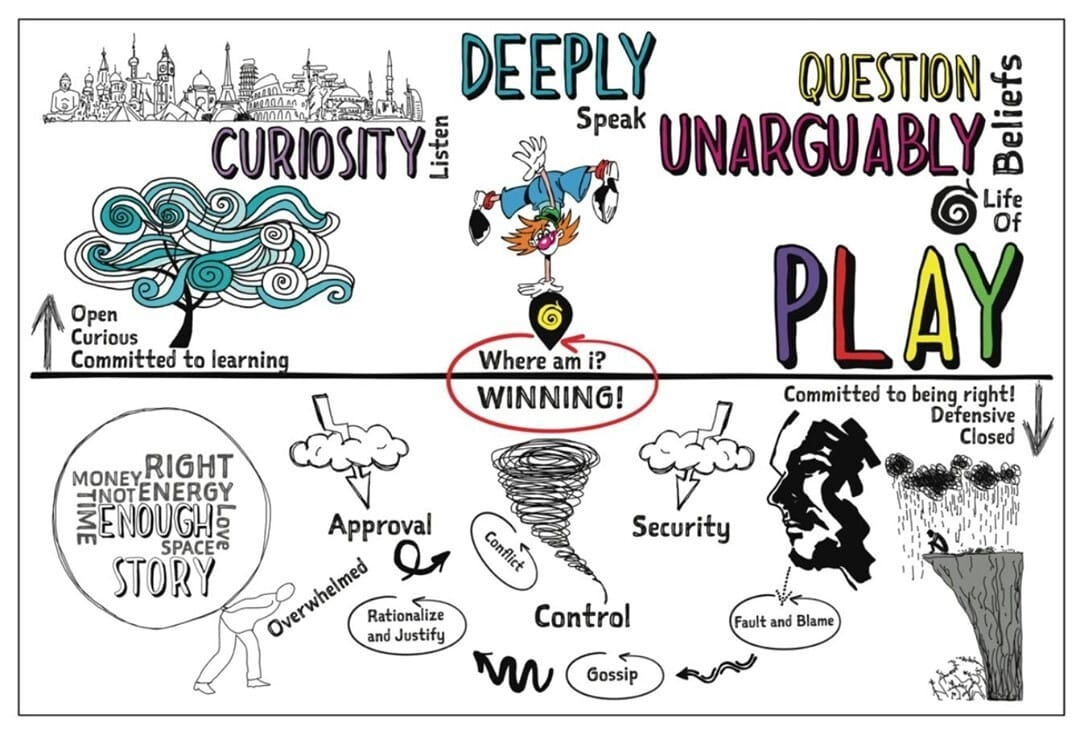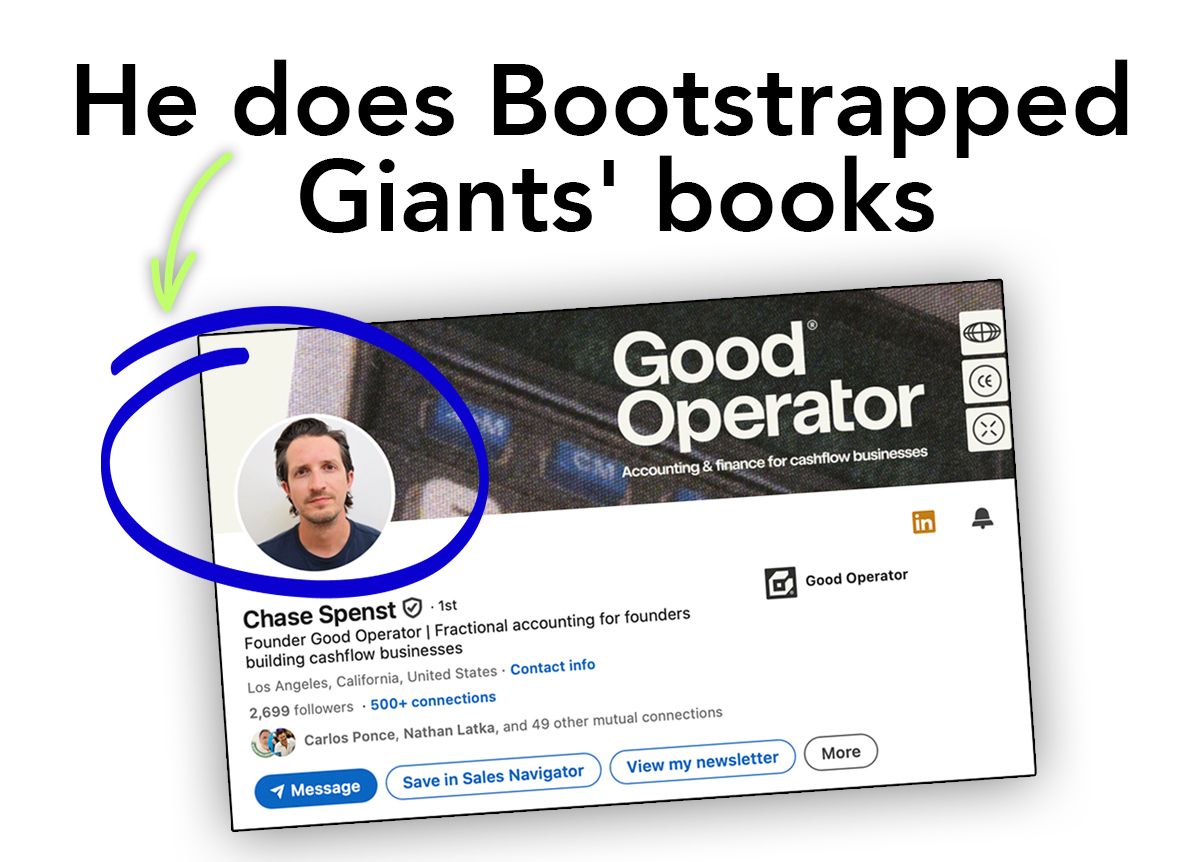- Bootstrapped Giants
- Posts
- How your mind works
How your mind works
This therapist noticed something unexpected
Can you remember a time you got so angry you didn't even recognize yourself?
Or so lazy that you couldn't stop judging yourself?
Or perhaps a time you got so absorbed in worry, you couldn't function.
I've been spending a lot of time with a spiritual and personal growth framework I want to share today: IFS or Internal Family Systems.

The creator is a psychologist named Richard Schwartz, and he has been a longtime family therapist.
After decades of being a family therapist, he noticed every family has different dynamics and people inside that "family system" show up in very specific ways.
After he noticed that at the family level, he started to realize that this same "family system" existed in all people, INTERNALLY.

That is… we all have different "parts" (or sometimes called personas) inside of us that may be running the show at different times, for different reasons.
These parts get created typically as protection mechanisms in childhood to feel safe.
If you're a long-time reader here, you know I love the Conscious Leadership Group and use/teach its practices in all my companies. They have a specific framework of above the line/below-the-line.

Essentially, when we are below-the-line, we are in a state of "threat," and when we are above-the-line, we are in a state of "trust."
In the threatened state (which is a total natural human response), we are closed off, trying to be right, wanting to protect.
In the above-the-line state, we are creative, open, and usually looking to help/serve.
I love the simplicity of this framework, and I reflect daily on where I am.
IFS takes it one step further by helping you better understand the specific ways you engage with threats.


Take a second and think about something YOU ARE NOT. Or that you would feel SO insulted if someone called you this.
For me, one example is if someone said I was a loser or a sad or a weak person. For my wife, it's being called a selfish person.
Exiles are the "parts" of ourselves we don't claim.
One important callout in this framework (and I believe it) is that EVERYONE is EVERYTHING.
In other words, we are all sad, happy, angry, outspoken, timid, persuasive, lazy, you name it.
We often get stuck in certain ways (which we call a “personality”) because of patterns we built growing up.
And a common thing we all do is "exile" a certain part. "That's not me, I'm not like that." Think of it as our own personal third rail or dark room.

The Manager is the most common part you will interact with when you meet a person. For some, this may be a type A, organized person.
For others, it may be the salesman. It's the personas and set of behaviors we use to keep ourselves moving day-to-day and to generally stay safe.
Mine are being "smart guy," "persuasive guy," "leader guy" and a few others. They are our loyal parts, that have helped us achieve what we achieve.

These are the rare parts that show up when there's a big problem. When we're unsafe, have a huge threat, or are otherwise off balance.
They come to rescue us in situations, and ESPECIALLY when exiles might show up, because we cannot be like that.
Some of mine are "angry guy," "withdrawn guy," and "debate guy."

Perhaps the most important aspect of this framework isn't a part but instead Self with a capital S (used to signify a divine/spiritual aspect).
This is most similar to the state of "above-the-line," where you are in an open, connected state.

Let's use an example to think about how these parts might work: Let's say you're negotiating a deal with a client.
You likely start in your manager parts. For me, that would be well spoken, organized, charismatic.
At some point during the negotiation, the client makes a few belittling comments such as "your little company needs us."
All of a sudden, my weak exiled part (that is, in fact, weak and scared) feels exposed.
My firefighters show up (angry and debate guy)... "Well, actually, we are all set. In fact, we need to raise the price on you."
The client is confused and decides to pick another vendor. We lose the deal.
Another part shows up to blame the firefighters…and I spiral.
Once you learn this, you can't unsee it. Most humans are their parts interacting with other people's parts.

Of course, this is a tiny taste of a deep and helpful framework. There's a great book called No Bad Parts, and other resources all over the internet.
Why am I telling you this?
Why is this psychological framework showing up in a business newsletter? Simple, we don't leave our "humanness" at the door when we start or run a company.
In fact, quite the opposite. Usually, the process of starting and running a company is so hard that it brings out the most humanness in us.
Building awareness is how you can ultimately not only start and run successful companies, but also come off "autopilot" and be more aware when your parts are running the show vs your Self.
Practically, I remember growing up and being told I had poor discretion, I'd put my foot in my mouth often, and it's something I wanted to improve.
I tried to "hold my tongue," but it never seemed to work.
It was only when I reflected and started to see the cycle of parts I wrote about here that I realized what was happening.
Once I built that awareness, discretion became MUCH easier and more natural.

So to use this framework, first start by identifying your parts.
Then pay attention next time you start to feel discomfort, anger, sadness, fear, or other large feelings, and check in to see which part is in control.
Let me know how you find this framework and any other unlocks you experience from it!
Have a great week.
jesse

Ask him to look at your books and make recommendations. You'll be shocked by what he uncovers.
How did you like this email? |
